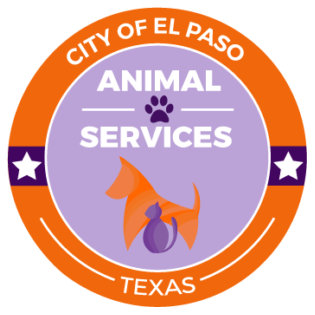Make Adoption Your Only Option
WHY ADOPT?
Thousands of pets are waiting for loving homes right here in the borderland. No matter what kind of breed, size, personality of pet that you’re looking for, there’s a pet waiting for you in an El Paso shelter or rescue. Backyard breeders are not only illegally selling animals, but they are also likely producing inhumane, cruel and neglectful environments for those animals, with the sole focus of making a profit.
When you choose to adopt a pet from a rescue or shelter, you save two lives—the pet you adopted, and the pet that organization can help after—PLUS, all pets adopted from a certified rescue or shelter have their spay/neuter, microchip and age-appropriate vaccinations included.
So choose to Make Adoption Your Only Option and Adopt EP!
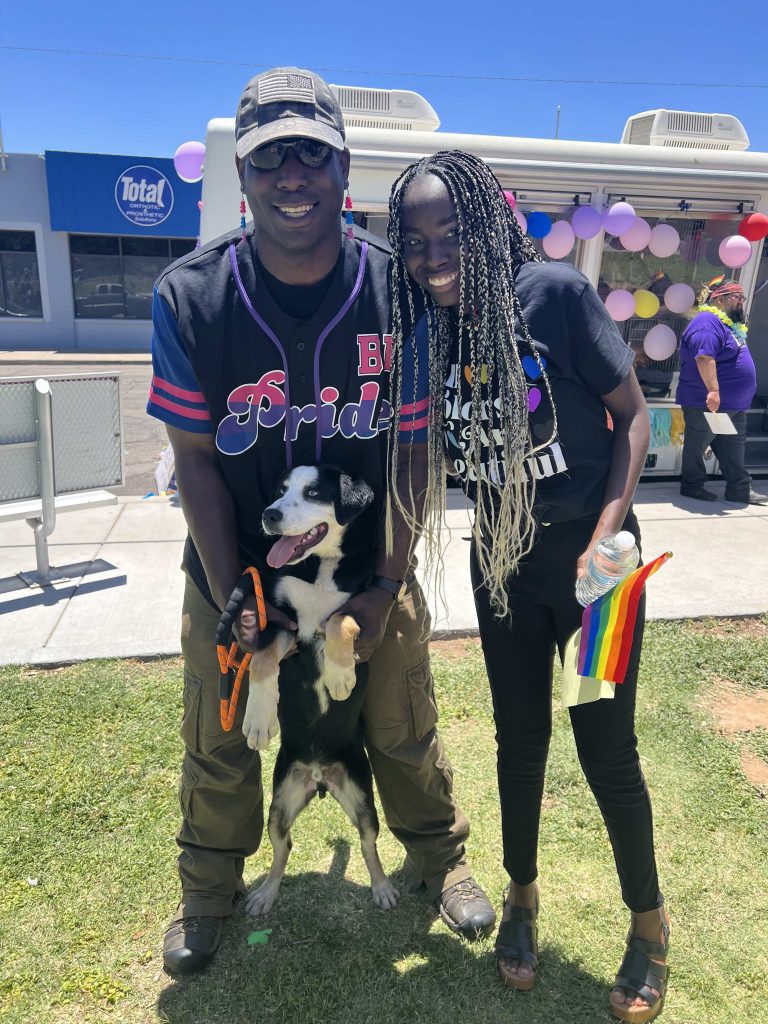
VISIT A LOCAL SHELTER
El Paso Animal Services cares for roughly 16,000 lost and homeless pets every year, and have HUNDREDS of pets waiting for a forever home at any given time. All adoptions with El Paso Animal Services include the pet’s spay/neuter procedure, microchip, age-appropriate vaccinations and city registration. View our adoptable pets online:
There are also a handful of other animal shelters in El Paso that have hundreds of adoptable pets. Find an animal shelter near you:
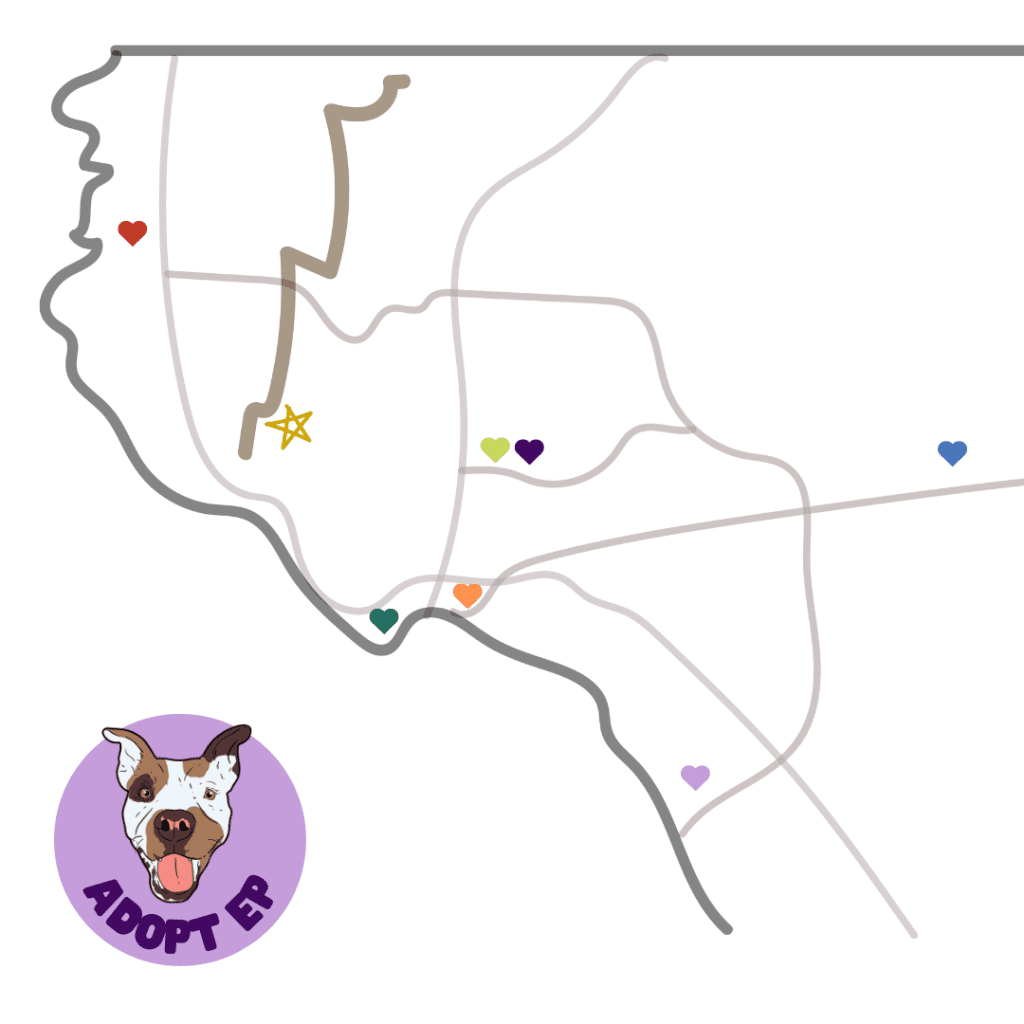
-
El Paso Animal Services Center
-
Humane Society of El Paso
-
Animal Rescue League
-
Pet Guardian Angel
-
Westside Adoption Center
-
Mission Valley Adoption Center
-
Cats At The Zoo Adoption Center
CHECK OUT A LOCAL RESCUE GROUP
LOOKING FOR YOUR PERFECT MATCH?
If you can’t find your perfect pet at a local shelter, consider reaching out to a local rescue group! Many local rescue groups will focus on breed or size-specific animals. Here’s a list of some of the local rescue groups with adoptable pets.
OTHER WAYS TO ADOPT
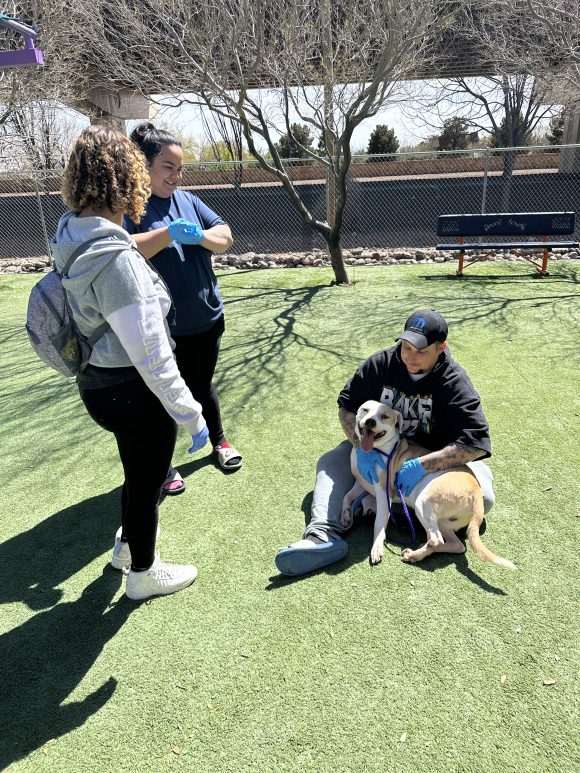
HOME TO HOME
El Paso Animal Services offers rehoming services through Home to Home, an online platform that allows residents to proactively rehome their pets when keeping them is no longer an option. Home to Home helps pets stay out of shelters by allowing them to go directly from an old home to a new one, preventing overcrowding and saving shelter resources for pets with no other options.
Keep an eye out for misleading posts from backyard breeders. Backyard breeders keep a small number of dogs that they repeatedly breed and masquerade as average pet owners “rehoming” puppies. They may use creative ways to get around limits on pet sales on Nextdoor or other sites. The poster looking to rehome their pet should be able to answer questions about the dog’s behavior, medical history, preferences and be willing to send additional photos or videos.
PET STORE ADOPTIONS (NOT PET SALES)
Many pet stores, including PetSmart and Petco, partner with local shelters and rescues to have onsite adoption facilities and/or onsite adoption events. To ensure that you are adopting a pet from a reputable shelter or private rescue, look for or inquire about the name of the group adopting the pet you are interested (many stores work with multiple partners at a time). Then verify that they are registered as a 501(c)3 non-profit organization or municipal organization and review their ratings on websites like Charity Navigator, GuideStar and Charity Watch.
Pet sales of dogs and cats (sourced from puppy mills) have been outlawed in the City of El Paso as of 2011. If you suspect any illegal sales or breeding, please report by calling 311.
TELL US YOUR HAPPY TAIL!
Have you adopted a pet from a shelter or rescue? We want to share your story! How has your rescue pet changed your life? What made you want to adopt?
What advice do you have for someone considering adopting? Submit your story so we can share how life is better with a rescue pet!
A PET, NOT A PRODUCT
Prior to 2016, roughly 20,000 animals were dying every year in El Paso because there simply was not enough homes. And while there have been numerous lifesaving programs implemented since then aimed at saving more animals, our region is still severely overpopulated. That’s why it’s important for our community to remember that breeding is not only irresponsible, but also in most cases, illegal in the City of El Paso, and by supporting illegal backyard breeders and puppy mills, you’re also contributing to the pet overpopulation in our region. Help make El Paso a no-kill community, and Make Adoption Your Only Option!
DID YOU KNOW?
There is no registered breeder in the City of El Paso. The only authorized breeders are those permitted to breed “qualified animals”, registered purebreds that are bred or placed for exhibitions or competitions, or animals that will be trained as service animals, or for search and rescue or other use by government agencies–however, there are currently no registered authorized breeders as of 2023.
Anyone that intentionally, or unintentionally, breeds their female dog or cat must obtain an Animal Litter Permit within 14 days of the litter’s birth. An Animal Litter Permit also requires that the female dog or cat cannot have more than one litter during any 12-month period.
Read more about local animal laws related to breeding and selling below:
A. No person shall sell a dog or cat except as provided in this title.
B. No person who advertises to sell or transfer a dog or cat that is under one year of age may charge the purchaser or transferee an amount that is greater than is allowed in subsection E.
C. No retail establishment may sell or transfer a dog or cat that is under one year of age for a charge or amount that is greater than is allowed in subsection E. Provided however, a retail establishment legally selling dogs or cats for profit as of April 1, 2011, may continue to sell dogs or cats under one year of age, at a price that is greater than is allowed in subsection E., through December 31, 2012. Thereafter, commencing on January 1, 2013, no retail establishment may sell or transfer a dog or cat under one year of age for a charge or amount that is greater than is allowed in subsection E, regardless of when the inventory was procured.
D. No animal welfare organization, in the course of transferring a dog or cat that is under one year of age, may request a charge or amount from a transferee than is greater than is allowed in subsection E.
- All dogs and cats over the age of four months that are transferred to a new owner shall be spayed or neutered, except as otherwise allowed in this title or under state law.
2. Prior to transferring any dog, cat or ferret to a new owner, an animal welfare organization shall check such animal for a microchip, and report the finding of a microchip to the program unless the animal is returned to the registered owner.
3. Every dog, cat or ferret coming into the possession of an animal welfare organization, received in any manner other than a release by the owner of the dog, cat or ferret, must be held a minimum of three (3) full days if the dog, cat or ferret did not have a registration tag or microchip at the time of initial possession, or for a minimum of six (6) full days if the dog, cat or ferret had a registration tag or microchip, before the animal may be transferred to a transferee/new owner.
4. Any animal may be transferred by an animal welfare organization to the department or to another animal welfare organization before the minimum holding time required under this section, provided however the receiving organization or the department must continue to hold the animal for such additional time as to meet the minimum requirements of this title.
5. Nothing in this chapter shall prohibit an animal welfare organization from receiving donations consistent with an organization’s non-profit status.
E. The maximum amount of charges that can be made or requested under subsections B., C., and D. for the sale or transfer of a dog or cat under one year of age are established for the purpose of allowing a seller, retail establishment or animal welfare organization to recover the following-listed expenses and costs incurred in conjunction with caring for the dog or cat, and are set as follows:
- If the amount or charges made or requested in accordance with this section for the sale or transfer of a dog or cat under the age of one year exceeds $50.00 per animal, a person, retail establishment, or animal welfare organization selling or transferring the dog or cat shall provide documentation of all expenses incurred other than the cost of food to the purchaser or transferee prior to the sale or transfer, and the amount of the charges made or requested shall not exceed the total amount of the documented expenses provided plus the cost of food, and in the case of an animal welfare organization, the cost of providing shelter. The purchaser or transferee shall be provided with a copy of all such documentation at the time of sale or transfer.
2. If such documentation is not available or cannot be provided to the purchaser or transferee prior to the sale or transfer, the maximum amount that can be charged or requested is $50.00 if the dog or cat has not been spayed or neutered or $150.00 if the dog or cat has been spayed or neutered. If the animal was spayed or neutered, the purchaser or transferee shall be provided with the name and address of the veterinarian who performed the surgery at the time of sale or transfer.
3. This section shall not apply to:
a. A retail establishment legally selling a dog or cat for profit as of April 1, 2011 through December 31, 2012, as provided in section 7.14.020 C.;
b. A permitted breeder holding a litter permit and selling a qualified animal; or
c. An individual holding a litter permit who does not conduct any advertisement for the sale of the animals within the city, including but not limited to making an open or public offering of the animals to the general public.
F. Every person, to include but not be limited to a retail establishment, breeder, and animal welfare organization, shall maintain accurate records of all sales, transactions, and transfers involving animals, which records shall show the date, type of animal, type of activity, and parties involved in any transaction or transfer of an animal. Such records shall be kept for two years, and will be made available upon demand to the program.
G. The director shall make any and all inspections deemed necessary to ensure compliance with this section and all required permits. Animals shall be kept under sanitary conditions so as not to endanger the public or animal health nor create a nuisance.
H. No person, including but not limited to a retail establishment, breeder, animal establishment, or animal welfare organization, shall release a dog, cat or ferret four months of age or older to any person unless such dog, cat or ferret is currently vaccinated against rabies and microchipped for identification.
I. Animals which are offered for sale or transfer to the public shall not be displayed or offered if they bear evidence of malnutrition, ill health, unhealed injury or having been kept in unsanitary condition, unless such sale or transfer is approved in writing by a veterinarian providing treatment for the subject animal.
J. Nothing in this section prohibits a retail establishment from allowing an animal welfare organization to use the retail establishment’s premises for the transfer of dogs and cats in compliance with this title.
No person may sell or offer for sale or transfer in any manner, a puppy or kitten under the age of eight weeks other than a puppy or kitten, or litter or litters taken to the department or to an animal welfare organization, or transferred between such organizations.
It is unlawful for any person to sell, trade, barter, lease, rent, give away, or display for a commercial purpose any animal on any roadside, public right-of-way, commercial parking lot, or at any flea market or festival, provided, however, that this paragraph shall not apply to an animal welfare organization when such organization has received prior written approval for such sale from the director and is complying with the specific limitations as set forth in the authorization, and with the requirements of Chapter 13.20 of this Code.
A. Any person who intentionally or unintentionally breeds a female dog or cat, or who owns or has custody of or control over a litter of puppies or kittens must obtain an animal litter permit and pay the established fee within fourteen days of the litter’s birth.
B. The issuance of a litter permit authorizes the whelping of no more than one litter per the female dog or cat identified in the permit in any twelve-month period.
C. The issuance of a litter permit does not authorize the sale of any puppies or kittens from the litter, except as permitted in this title.
D. Any owner, or person advertising the sale or other transfer of a puppy or kitten under four months of age located within the city limits shall include or display the litter permit number on such advertisement regardless of the media used for such advertisement, and all charges or prices listed in such advertisements must be in compliance with the requirements of Section 7.14.020.
E. Any breeder advertising the sale or other transfer of a qualified animal shall include or display the breeder permit number in addition to the litter permit number on such advertisement regardless of the media used for such advertisement.
F. The provisions in Subsections A. and D. do not apply to the department, an animal welfare organization, or a veterinarian or veterinary facility, which has received abandoned puppies or kittens.
A. Application for a breeder’s permit shall be made as provided in Section 7.04.090, and shall contain the information required herein and in Sections 7.04.090 and 7.14.010 of this Code.
B. In addition to the information required under Sections 7.04.090 and 7.14.010, an applicant for a permit under this section shall submit the following information:
- Whether the qualified animals are dogs or cats or both species, and the organizations or registries with which these qualified animals are registered;
2. A declaration of intent to breed only currently registered purebred animals of the same type and registry which are also eligible for registry with one or more additional registration agencies and that the offspring of any breeding are expected to be eligible for registration with the same registry, and/or to breed animals solely for the intended purpose of being trained and certified as service animals, for search and rescue use, or for official use by law enforcement and governmental agencies;
3. A statement that the applicant will not breed a qualified animal, other than service animals and animals for search and rescue use or for official use by law enforcement and governmental agencies, outside the age parameters as set by their sanctioned breed club or registry standards;
4. An agreement to provide copies of documents evidencing compliance with the requirements of this section at the request of the program;
5. The names of primary care-givers for the qualified animals in addition to the applicant;
6. A statement as to whether the applicant, any person identified under subsection B.5., or any person who resides at the premises where the qualified animal lives, has ever been convicted of or is on deferred adjudication for neglect, mistreatment or cruelty to animals; and
7. Provide evidence that all animals in the possession of the applicant are in compliance with all provisions of this title.
C. All permits under this section shall be issued in accordance with Section 7.04.090, provided however, no permit shall be issued to an applicant if the applicant, or any person residing at the premises where the qualified animal lives, when the director determines that such person has been convicted of or is on deferred adjudication probation for a violation of any federal, state, or local law or regulation for neglect, mistreatment or cruelty to animals that is relevant to the propriety of the issuance of the permit. Such a conviction or deferred adjudication occurring after a permit is issued may be grounds for the revocation of the permit. All permits shall be valid for thirty-six months, and may be renewed as provided in Section 7.14.010 of this Code.
D. Prior to issuing the permit, or upon an annual basis after the permit is issued, or at any time when the director has a reasonable basis to believe that an inspection is necessary to analyze or determine the appropriate status of the permit, he or his designees may inspect the qualified animal’s living area during normal business hours upon giving the applicant a minimum of twenty-four hours notice. The applicant shall have an opportunity to be present at the time of inspection or to designate a representative to be present.
E. The issuance of a breeder’s permit does not authorize the sale of any puppies or kittens from a litter, unless the breeder has also obtained a litter permit and complied with all other applicable provisions of this title including, but not limited to, the requirements for advertising.
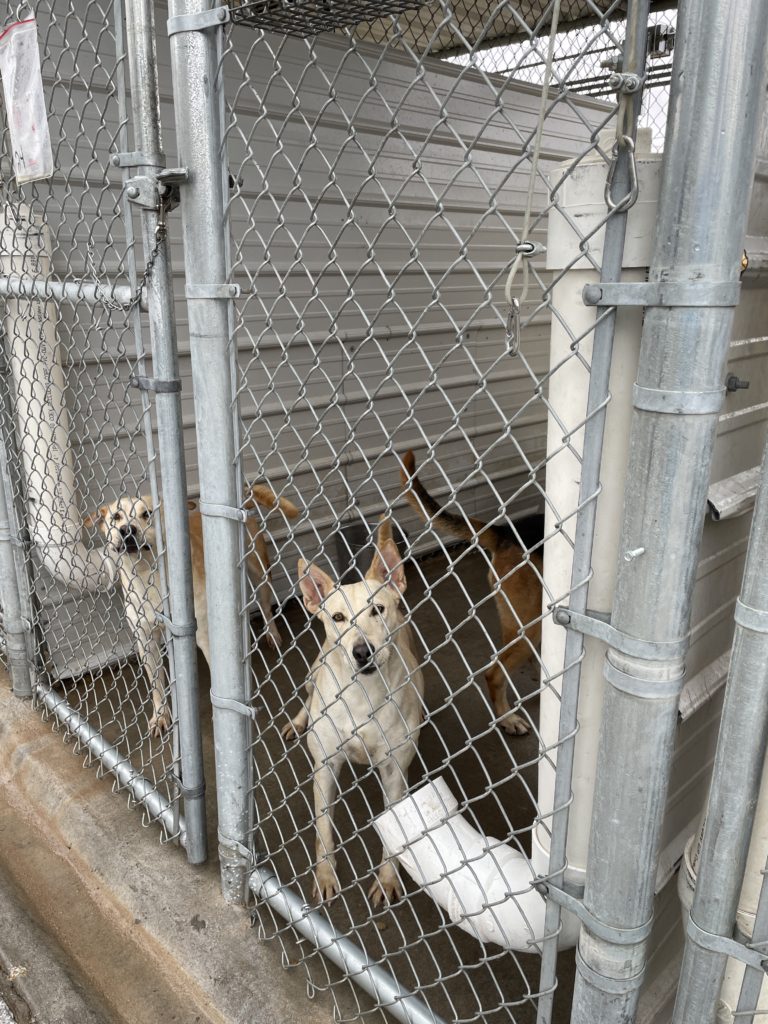
ENFORCEMENT
El Paso Animal Services – Animal Protection Team and the EPPD Animal Cruelty Investigations Unit has a zero-tolerance for illegal animal breeding and selling. If you’re caught illegally breeding or selling, you can receive any of the following citations, which can result in an up to $2,000 fine and a Class C Misdemeanor for EACH violation. An individual can be cited for violating each of the animal laws referenced above, as well as additional ordinances including:
Every person within the City of El Paso who owns or harbors any animal, or who owns, conducts, manages or operates any animal establishment for which a license is required by this title shall comply with each of the following conditions:
A. Shelter and shade for animals must be provided.
B. No animal shall be neglected.
C. All animals shall be supplied with sufficient good and wholesome food and clean water as often as the feeding habits of the respective animals require.
D. All animals and all animal buildings or enclosures shall be maintained in a clean, safe and sanitary condition.
E. Animal buildings and enclosures shall be so constructed and maintained as to prevent escape of animals. All reasonable precautions shall be taken to protect the public from the animals and the animals from the public.
F. Every animal establishment shall isolate animals known to be sick sufficiently so as to not endanger the health of other animals. Sick animals shall at all times be isolated from other animals.
G. The owner or custodian of an animal shall be required to present an animal to a veterinarian for examination or treatment if the director or veterinary officer finds this is necessary in order to maintain the health of the animal and notifies the owner or custodian to do so.
H. It is unlawful to restrain a dog in violation of this section.
- An owner may not leave a dog outside and unattended by use of a restraint that unreasonably limits the dog’s movement:
a. Between the hours of ten p.m. and six a.m.;
b. Within five hundred feet of the premises of a school; or
c. In the case of inclement weather or extreme weather conditions, including conditions in which:
i. The actual or effective outdoor temperature is below thirty-two degrees Fahrenheit;
ii. A heat advisory has been issued by the National Weather Service, or a local or state authority, including the City of El Paso; or
iii. A tornado warning has been issued for the City or County of El Paso by the National Weather Service.
2. In this section, a restraint unreasonably limits a dog’s movement if the restraint:
a. Uses a collar that is pinch-type, prong-type, or choke-type or that is not properly fitted to the dog;
b. Is a length shorter than the greater of:
i. Five times the length of the dog, as measured from the tip of the dog’s nose to the base of the dog’s tail; or
ii. Ten feet;
c. Is in an unsafe condition; or
d. Causes injury to the dog.
3. Exceptions. The following do not constitute a violation of this section:
a. A dog restrained to a running line, pulley, or trolley system and that is not restrained to the running line, pulley, or trolley system by means of a pinch-type, prong-type, choke-type, or improperly fitted collar;
b. A dog restrained in compliance with the requirements of a camping or recreational area as defined by a federal or state authority or the City of El Paso;
c. A dog restrained for a reasonable period, not to exceed three hours in a twenty-four-hour period, and no longer than is necessary for the owner to complete a temporary task that requires the dog to be restrained;
d. A dog restrained while the owner is engaged in, or actively training for, an activity that is conducted pursuant to a valid permit or license issued by the State of Texas or City of El Paso if the activity for which the license is issued is associated with the use or presence of a dog;
e. A dog restrained while the owner is engaged in conduct directly related to the business of shepherding or herding cattle or livestock; or
f. A dog restrained while the owner is engaged in conduct directly related to the business of cultivating agricultural products, if the restraint is reasonably necessary for the safety of the dog.
4. This section does not prohibit a person from walking a dog with a hand-held leash.
I. It shall be a violation of this title to provide an alcoholic beverage, controlled substance or illegal drug to an animal, unless prescribed by a veterinarian.
A. Dogs, cats and ferrets shall be registered, vaccinated and have an implanted microchip as provided in this title.
- No person who is a resident of the city shall have within the city for more than thirty days any dog, cat or ferret four months of age or older unless such dog, cat or ferret is currently registered with the program.
2. No person who is not a resident of the city shall have within the city any dog, cat or ferret for more than ninety days unless such dog, cat or ferret is currently registered with program.
3. No dog, cat or ferret shall be registered unless it has a current vaccination as is required by the director and an implanted microchip. A registration certificate and tag may be obtained from veterinarians who have obtained authority from the program to issue them, or from an employee at the center upon presentation of a certificate of current vaccination and evidence of microchip.
4. No person shall have within the city any dog, cat or ferret four months of age or older for more than ten days unless such dog, cat or ferret is currently vaccinated against rabies.
5. An ear tipped cat that has been processed through the trap-neuter-return protocol shall be exempt from the registration and microchip requirements of this chapter. A person who requests that the program implant a microchip into or register an ear tipped cat that has been processed through the trap-neuter-return protocol, shall pay the applicable fee authorized by City Council for said service.
6. All city contracts involving other municipalities or government entities must be consistent with the requirements of this chapter.
B. Upon application by a veterinarian, the program shall furnish the veterinarian with a supply of microchips and pre-numbered registration certificates and corresponding tags. The veterinarian shall be authorized to receive applications and issue registration certificates and tags for animals that are currently vaccinated and microchipped. Copies of all certificates issued shall be distributed and transmitted to various city agencies in accordance with arrangements made by the program with the veterinarians, provided that no information shall be released in violation of Texas Health and Safety Code Section 826.0211. When applying for additional microchips, certificates and tags the veterinarian shall account to the program for all those previously supplied to him, and shall remit to the program all fees collected. A veterinarian may exchange or return up to one hundred, unused, expired from the previous year tags for current year tags annually. This section does not apply to lost tags. He shall be held financially responsible for any microchips, certificates and tags no longer in his possession that have not been issued or voided and returned to the program. The program may refuse to supply additional microchips, certificates and tags to any veterinarian who fails to account for all items previously furnished to him by the program. All fees collected by any veterinarian are payable to the city upon demand.
C. Application for initial issuance or renewal of each registration must be made by the owner in writing or in person, and be accompanied by the established fee for a dog, cat, or ferret. If an original current registration certificate is lost or destroyed, the owner may obtain a duplicate by paying the established fee.
D. A registration shall be renewed annually.
E. No person shall use a certificate or tag for any animal other than the one for which it was issued.
F. If there is a change in ownership or owner contact information of a registered dog, cat or ferret, the new owner shall update contact information to include any new address and telephone number, and have the registration and microchip information transferred to his name or new contact information within seven days after the change in ownership or change in owner contact information. Application for a change of ownership or change of contact information of a registered dog, cat or ferret shall be made to the program in the manner established by the director in writing, in person, or at the office of a participating veterinarian, and be accompanied by the established fee.
G. Fee-exempt registrations may be issued for the following, provided however, eligibility for fee-exempt registration does not relieve the owner of his responsibility under other provisions of this title:
- Dogs that are trained and used in an official capacity by a law enforcement or governmental agency;
2. Service animals; and
3. Animals other than dogs, cats or ferrets that are vaccinated against rabies.
A. Upon registration there shall be delivered to the owner a metallic tag stamped with the registration certificate number and the year in which issued.
B. The owner shall see that the dog or cat wears at all times a collar or harness to which the current registration tag shall be attached, except as in subsection C or D of this section. It is unlawful for any person to remove the tag from the collar or harness without the owner’s consent.
C. Dogs or cats confined within a residence need not wear their collar or harness nor their registration tag while within the residence. However, in no case shall a dog or cat be allowed to exit the interior of the residence without wearing their collar or harness with the current registration tag attached.
D. Dogs or cats competing at approved dog or cat club shows or trials or while being transported to and from such events need not wear their collar or harness nor their registration tag.
E. If such tag is lost or destroyed, the owner shall apply at the center in writing, in person, or at the office of a participating veterinarian, for a new tag by presentation of the applicable vaccination certificate, registration certificate, and evidence of microchip, accompanied by the established fee.
No person shall own, keep or harbor within the city any dog, cat or ferret four months of age or older unless such dog, cat or ferret has a current vaccination and implanted microchip. A dog, cat or ferret will have a current vaccination for one year. However, after April 1, 2006, a vaccination may be current for a period of three years dependent upon the type of vaccine administered. All vaccinations shall be administered according to the label recommendations of a United States Department of Agriculture (USDA) approved vaccine. The dog, cat or ferret must be re-vaccinated before the expiration of the first and each subsequent current vaccination period.
REPORTING ILLEGAL BREEDING
If you see a violation of these ordinances within the City of El Paso, or you suspect someone of illegally breeding or selling animals, please call 311 to file an official report. Investigating violations such as these can be difficult, so providing as much detail in your report can help Animal Protection Officers investigate thoroughly:
- License plate
- Address
- Phone number
- Photos or videos
- Screenshots of advertisement
- Seller’s name
- Type/breed of pet being sold
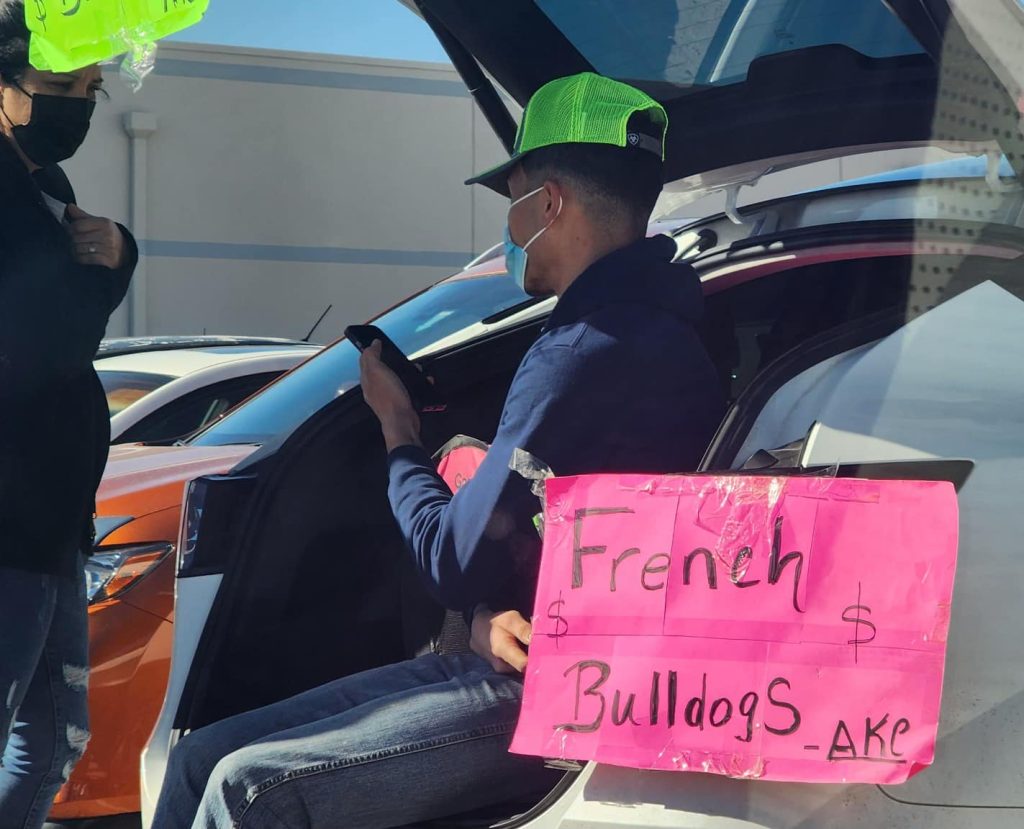
BUYER BEWARE
There is NO registered breeder in El Paso, so anyone you see selling puppies/kittens online or in the community are doing so illegally.
This is called ‘Backyard Breeding,’ and not only is it illegal, but it’s also irresponsible. Backyard Breeders choose profit over animal welfare. Here are some other reasons why you should reconsider purchasing a pet from a backyard breeder or puppy mill:
- Many backyard breeders separate puppies from their mom too early, which leads to serious behavior problems
- Backyard breeders don’t focus on the health of the pets, and many times puppies/kittens end up sick or with lifelong medical conditions
- Oftentimes, backyard breeding leads to animal cruelty or neglect concerns, with animals being held in poor conditions
- Adults are continuously bred forcibly until they can no longer produce, and then they are discarded
- Backyard breeders and puppy mills contribute to the overpopulation in our region–thousands of pets are already in shelters and rescues right here in El Paso looking for homes
- In 2014, about 18,000 dogs and cats were euthanized in El Paso due to the community’s pet overpopulation, stemming from unplanned and uncontrolled breeding
HELP SAVE MORE LIVES!
If you can’t adopt, there are more ways to help save lives! Consider making a gift to support lifesaving programs that help keep pets with their families, and care for homeless pets that enter the shelter. Every dollar makes a difference!

